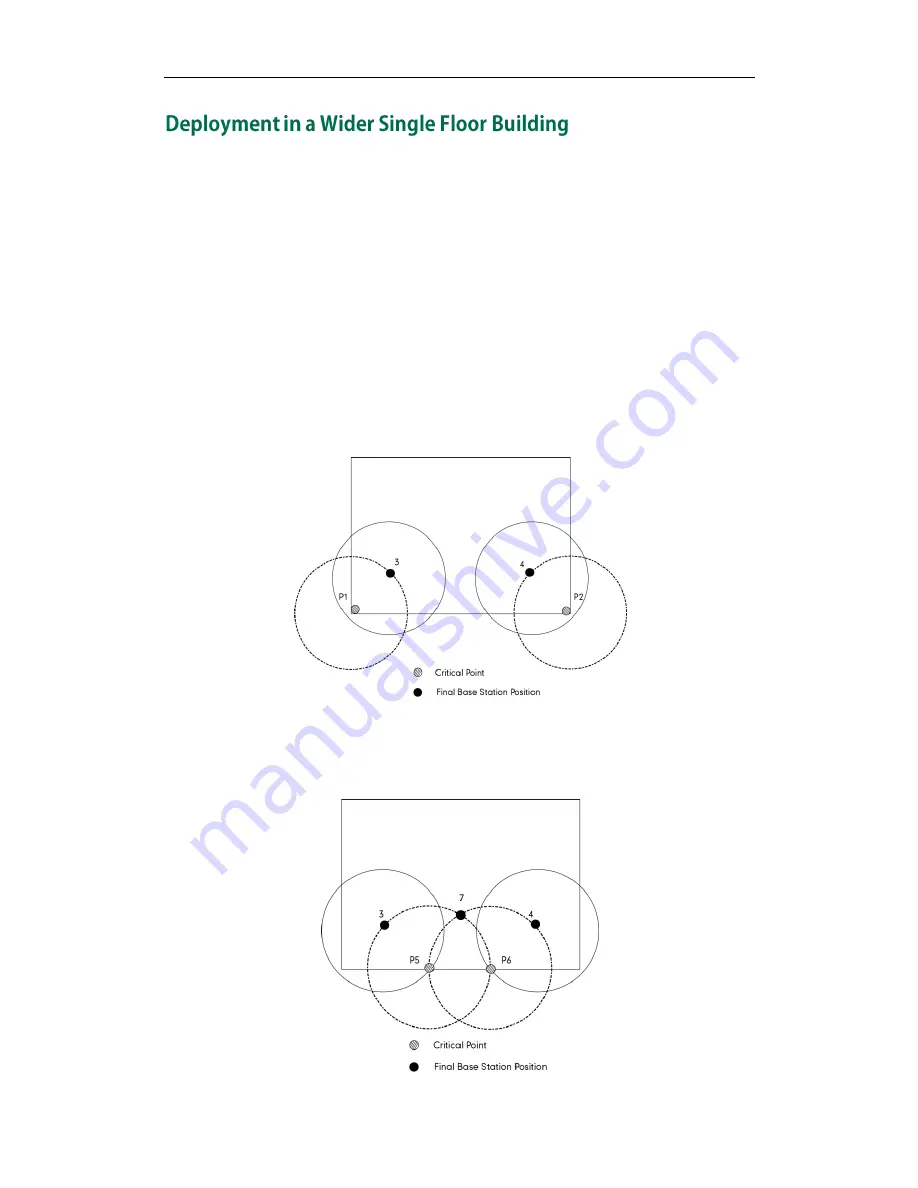
Yealink DECT Phone System Deployment Guide
8
In some deployment, there is no overlap between the deployment base stations of
critical points. To deploy in these environments:
Mark the areas of the site to be deployed.
Place the deployment base stations on the critical point P1.
Set up a communication between the base station and cordless handset.
Measure the radio coverage and determine the limit of the radio coverage of the
critical point.
Measure the signal in a 45 degree angle towards the center of the area.
Proceed to the critical point P2 and perform the same procedures.
The area centers are the final positions for base stations, shown by position 3 and 4
in the following figure.
Determine the limits of the coverage areas from cell centers (position 3 and 4).
Place the deployment base stations at cell centers to determine the final position
(position 7) for the third base station.
Summary of Contents for Telkom W52P
Page 1: ......

































